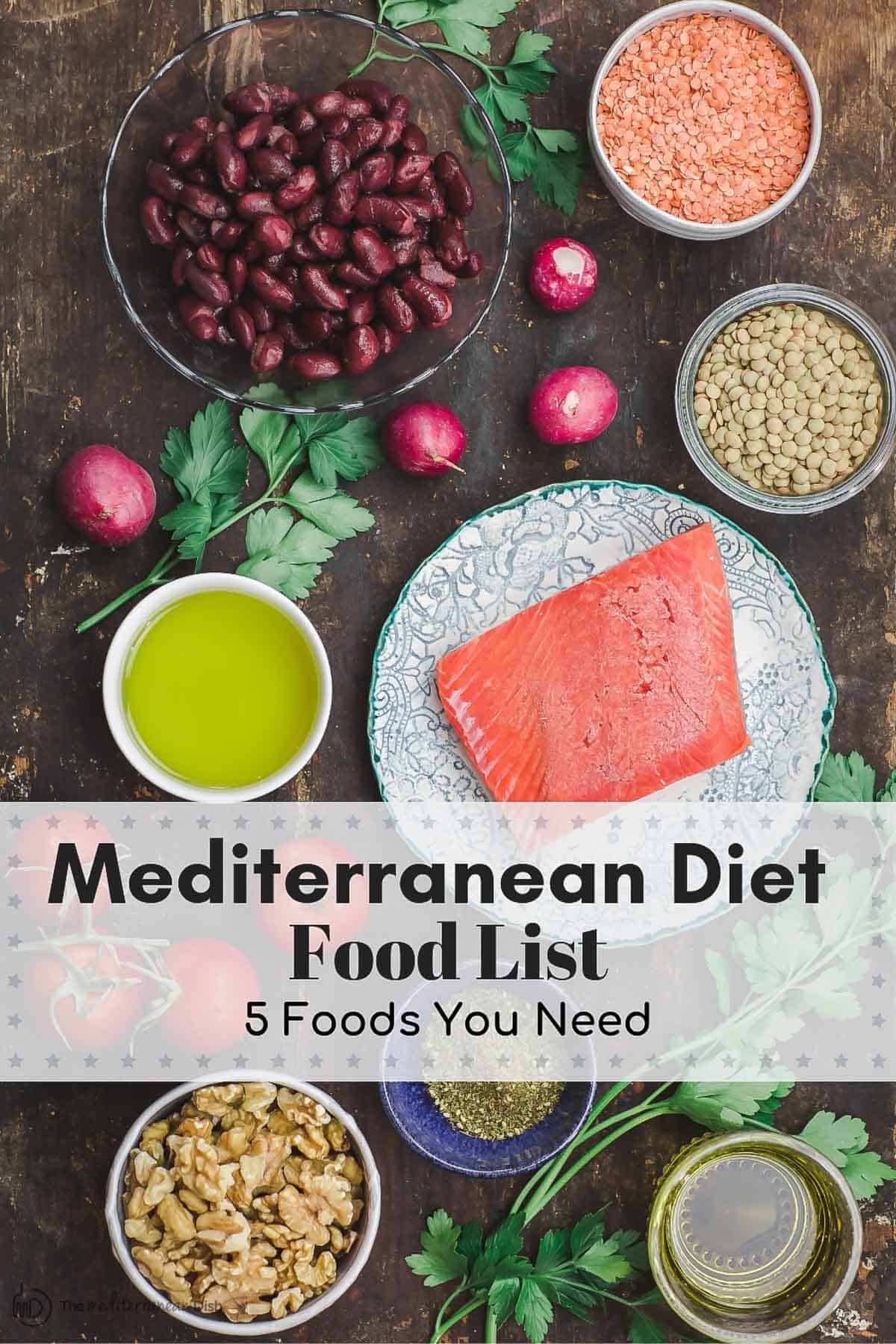
Mediterranean diet
TABLE OF CONTENTS
- 1 Understanding the Mediterranean Diet
- 2 Key Components of the Mediterranean Diet
- 3 Health Benefits of the Mediterranean Diet
- 4 Practical Tips for Adopting the Mediterranean Diet
- 5 Conclusion
- 6 Frequently Asked Questions (FAQs)
- 6.1 1. Can I lose weight on the Mediterranean diet?
- 6.2 2. Is the Mediterranean diet suitable for everyone?
- 6.3 3. Can I eat red meat on the Mediterranean diet?
- 6.4 4. What is the best way to begin transitioning to the Mediterranean diet?
- 6.5 5. Where can I find more information about this lifestyle?
- 6.6 Related
Understanding the Mediterranean Diet
The Mediterranean diet is not just a meal plan; it represents a way of life for millions of people living around the Mediterranean Sea. This dietary pattern has gained popularity worldwide due to its numerous health benefits, which include weight management, heart health, and a lower risk of chronic diseases. In this article, we will explore the key components of the Mediterranean diet, its health benefits, practical tips for adopting this lifestyle, and frequently asked questions surrounding the diet.
Key Components of the Mediterranean Diet
At the heart of the Mediterranean diet lies a focus on whole, unprocessed foods. Here are the primary components:
- Fruits and Vegetables: A cornerstone in any Mediterranean meal, a variety of colorful fruits and vegetables are consumed daily.
- Whole Grains: Whole grain bread, pasta, brown rice, and barley are preferred over refined grains.
- Healthy Fats: Olive oil is the main source of fat, replacing saturated fats like butter. Nuts and seeds also provide healthy fats.
- Legumes: Beans, lentils, and chickpeas are rich in protein and fiber, making them integral to the diet.
- Fish and Poultry: Seafood, particularly fatty fish rich in omega-3s, is eaten at least twice a week, while red meat is consumed sparingly.
- Dairy: Moderate amounts of dairy, such as yogurt and cheese, are included, often in fermented forms.
- Herbs and Spices: Fresh herbs and spices are used to season foods instead of salt, adding flavor and additional health benefits.
- Moderate Alcohol: If consumed, red wine is enjoyed in moderation, usually with meals.
Health Benefits of the Mediterranean Diet
Numerous studies have supported the health benefits associated with the Mediterranean diet. Here are some of the most notable:
1. Heart Health
Research indicates that adherence to the Mediterranean diet is linked with a lower incidence of cardiovascular disease. The diet’s emphasis on healthy fats, particularly from olive oil and fish, reduces bad cholesterol levels while promoting heart health.
2. Weight Management
The diet’s focus on whole foods and fiber-rich foods helps regulate appetite, making it easier to maintain a healthy weight. Studies show that those who follow the Mediterranean diet often experience long-term weight loss success.
3. Reduced Risk of Chronic Diseases
In addition to heart disease, the Mediterranean diet is associated with a lower risk of various other chronic diseases, including type 2 diabetes, hypertension, and certain types of cancer.
4. Improved Brain Health
Emerging research suggests that the Mediterranean diet may also have protective effects on brain health, potentially reducing the risk of Alzheimer’s disease and cognitive decline.
5. Longevity
People who predominantly follow the Mediterranean diet tend to live longer than those who do not. This could be attributed to the combined effects of diet, physical activity, and social interactions emphasized in Mediterranean culture.
Practical Tips for Adopting the Mediterranean Diet
Switching to a Mediterranean lifestyle doesn’t have to be overwhelming. Here are some practical tips for seamlessly integrating this diet into your daily life:
1. Start with Small Changes
Instead of overhauling your entire diet, begin by introducing more fruits, vegetables, and whole grains into your meals. Replace butter with olive oil and add nuts or seeds as snacks.
2. Cook at Home
Home-cooked meals allow for better control over ingredients. Focus on simple recipes that highlight fresh, seasonal produce. Explore Mediterranean-inspired dishes that make use of legumes, grains, and healthy fats.
3. Plan Your Meals
Meal planning can help encourage the consumption of a variety of foods while keeping you on track. Integrate fish into your weekly plan and vary your fruits and vegetables to ensure a wide range of nutrients.
4. Eat with Others
Food is an integral part of socializing in Mediterranean cultures. Make meal times a social event, whether it’s dining with family or friends, to enjoy the full experience of a Mediterranean lifestyle.
5. Stay Active
Physical activity is vital in the Mediterranean culture. Combine a healthy diet with regular physical activity, such as walking, cycling, or engaging in sports, to enhance your overall well-being.
Conclusion
The Mediterranean diet offers a well-rounded, wholesome approach to eating that not only emphasizes health but also values the enjoyment of good food and relationships. With its focus on fresh, whole foods and healthy fats, it presents an appealing alternative to many conventional diets. Those who adopt this lifestyle can enjoy numerous health benefits while indulging in delicious and satisfying meals. By introducing small changes and making mindful choices, anyone can embrace the Mediterranean diet and unlock a healthier life.
Frequently Asked Questions (FAQs)
1. Can I lose weight on the Mediterranean diet?
Yes, many people experience weight loss when following the Mediterranean diet due to its focus on whole foods and balanced nutrition.
2. Is the Mediterranean diet suitable for everyone?
Yes, the Mediterranean diet can be adapted for various individual dietary needs. However, it is always best to consult a healthcare provider or nutritionist for personal advice.
3. Can I eat red meat on the Mediterranean diet?
Red meat is consumed in moderation in the Mediterranean diet. It’s recommended to focus on fish and poultry, as they are leaner sources of protein.
4. What is the best way to begin transitioning to the Mediterranean diet?
Start by incorporating more fruits, vegetables, and whole grains into your diet. Gradually reduce processed foods and added sugars while opting for healthy fats like olive oil.
5. Where can I find more information about this lifestyle?
You can find additional resources and insights on various health platforms and articles. For more detailed discussions, visit this link and this one.
The Mediterranean diet is a nutritional pattern inspired by the traditional dietary habits of countries bordering the Mediterranean Sea, including Greece, Italy, and Spain. It emphasizes whole, minimally processed foods and a variety of flavors, making it not only a healthy option but also a delightful culinary experience. At its core, the Mediterranean diet is rich in fruits, vegetables, whole grains, legumes, nuts, and olive oil, while being lower in red meat, processed foods, and added sugars. This approach to eating aligns with a lifestyle that prioritizes fresh and seasonal ingredients, promoting balanced meals and mindful eating practices.
One of the key components of the Mediterranean diet is the use of olive oil, which serves as the primary source of fat. Rich in monounsaturated fats and antioxidants, olive oil is known to support heart health by reducing inflammation and improving cholesterol levels. Additionally, it provides a variety of vitamins and minerals that contribute to overall well-being. Other healthy fats included in this diet are those from nuts and fish, particularly fatty fish such as salmon and sardines, which are high in omega-3 fatty acids. This focus on healthy fats is one of the factors that contributes to the reduced risk of cardiovascular diseases observed in populations that adhere to this eating pattern.
Another significant aspect of the Mediterranean diet is the emphasis on consuming a wide array of plant-based foods. Fruits and vegetables are staples in meals, providing essential nutrients, fiber, and antioxidants that help protect against chronic diseases. Whole grains such as quinoa, brown rice, and whole-grain pasta are also featured prominently, offering sustained energy and promoting digestive health. Legumes, like beans and lentils, play a vital role, serving as an excellent source of protein and further enriching the diet’s nutritional profile. By prioritizing these plant-based foods, individuals can enjoy a diverse range of flavors and textures while reaping numerous health benefits.
In addition to its nutritional advantages, the Mediterranean diet promotes a lifestyle that values social connections and mindful eating practices. Meals are often shared with family and friends, fostering a sense of community and enjoyment around food. This approach helps to slow down the eating process, encouraging individuals to savor their meals and appreciate the diverse flavors present in each dish. The emphasis on seasonal and local produce also connects individuals to their environment and cultural heritage, making the act of eating a more meaningful experience. Such practices contribute to both mental and emotional well-being, which are essential components of overall health.
Research has consistently shown that adhering to the Mediterranean diet can lead to a multitude of health benefits, including weight management, improved heart health, and a lower risk of chronic conditions such as diabetes and certain cancers. The diet’s balanced composition, coupled with its focus on whole, nutrient-dense foods, offers a sustainable approach to healthy eating that easily fits into various lifestyles. As more individuals become aware of its benefits, the Mediterranean diet continues to gain popularity worldwide, encouraging a return to simpler, more mindful eating habits that celebrate both health and enjoyment.







